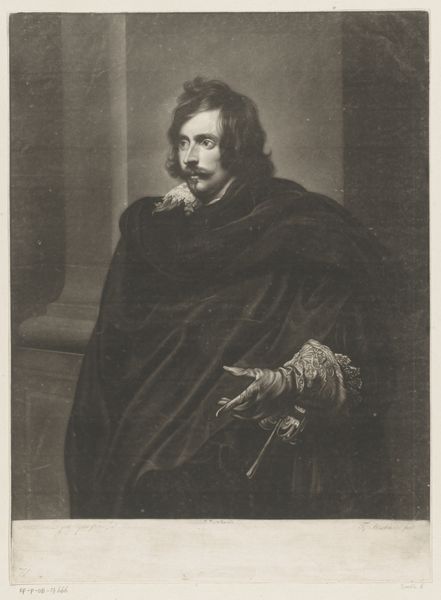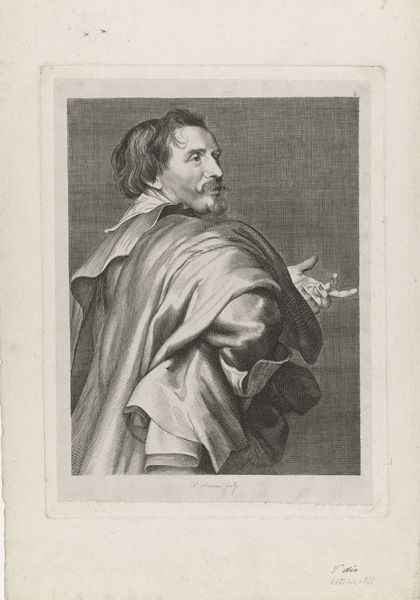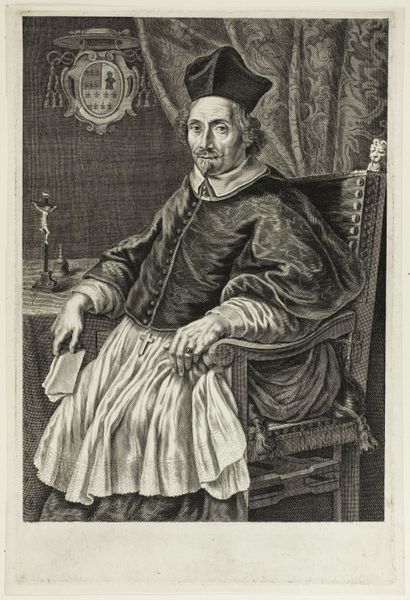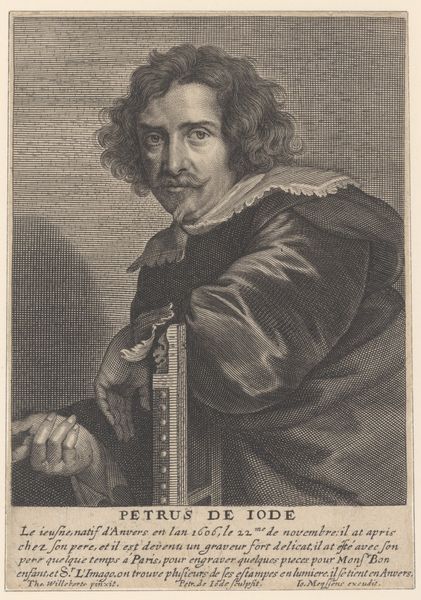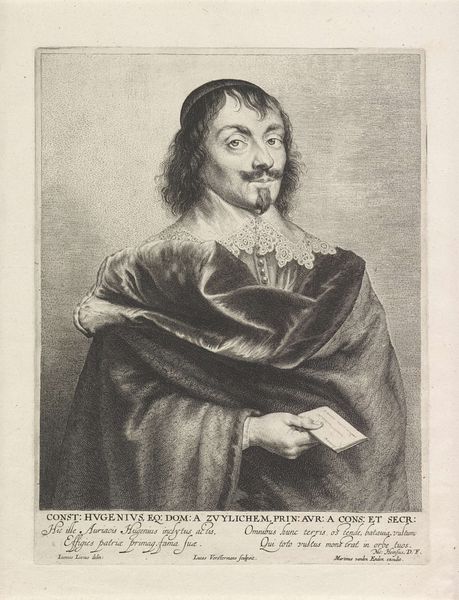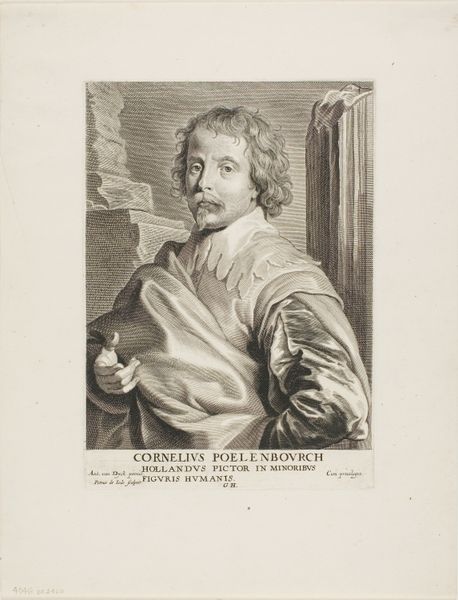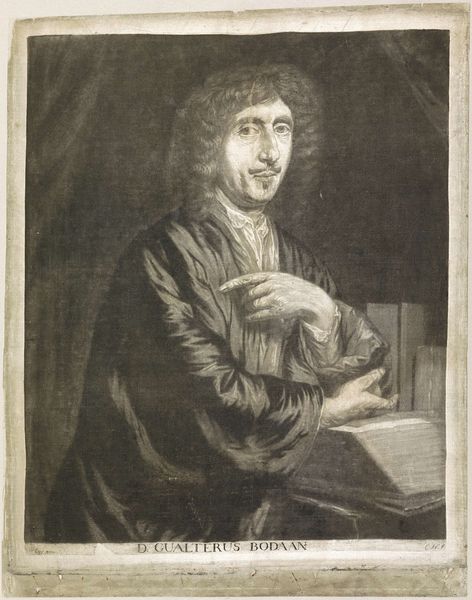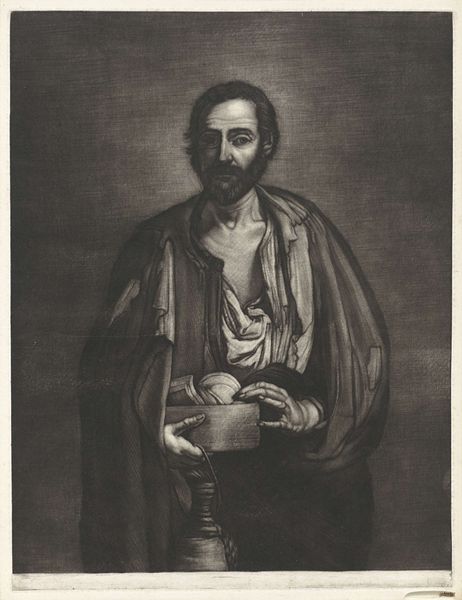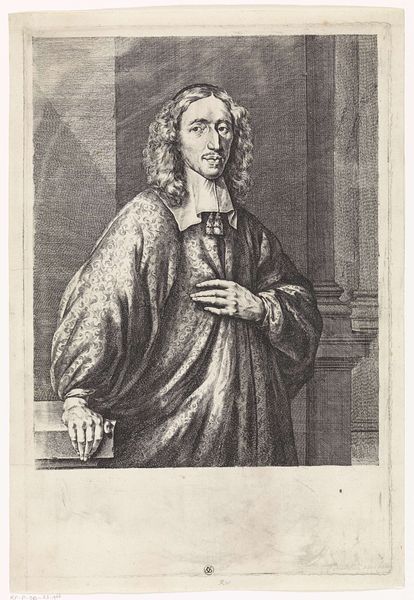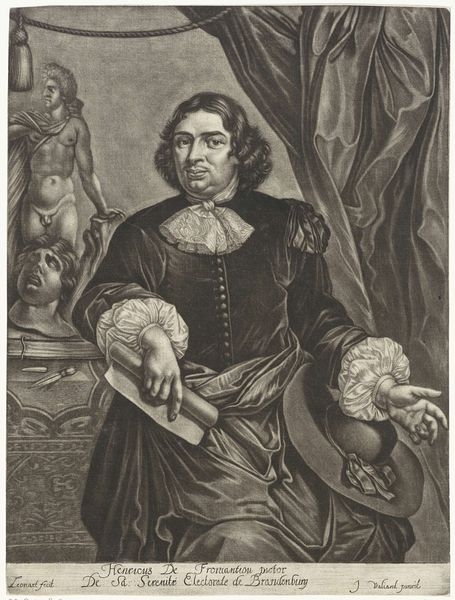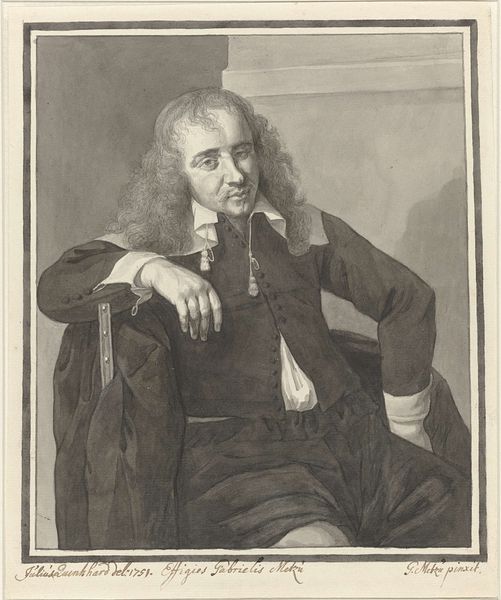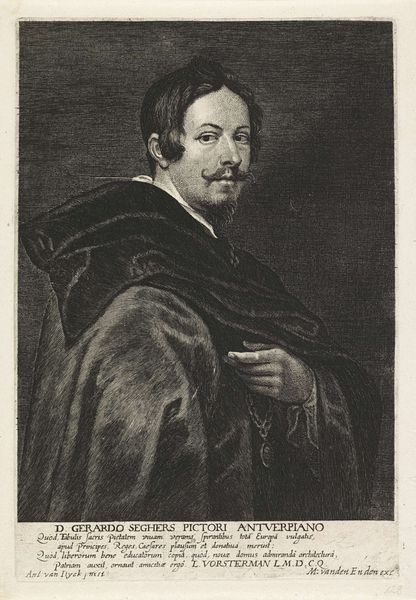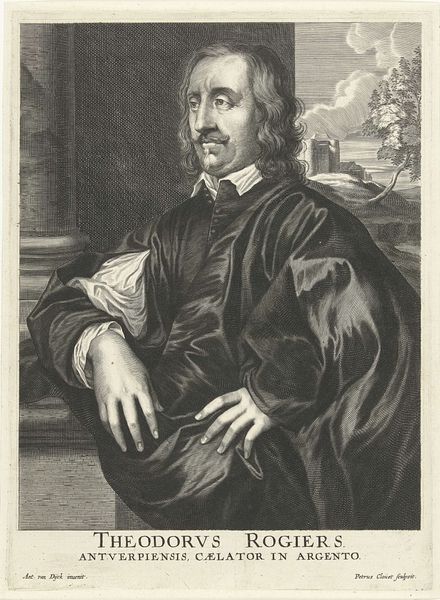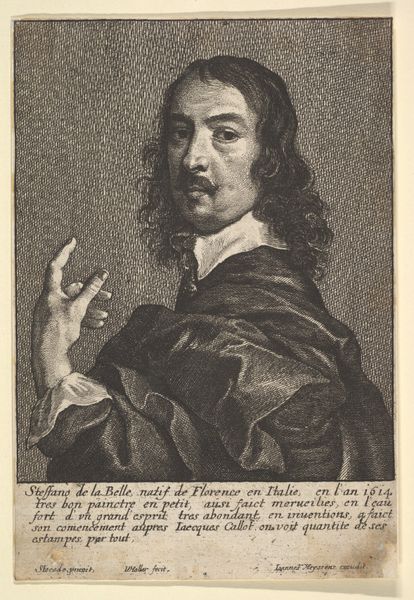
engraving
#
baroque
#
historical photography
#
historical fashion
#
history-painting
#
engraving
#
realism
Dimensions: height 373 mm, width 292 mm
Copyright: Rijks Museum: Open Domain
Editor: We're looking at "Portret van Lucas van Uffel" by Wallerant Vaillant, an engraving dating somewhere between 1658 and 1677. I'm immediately struck by the darkness of the image, but also the precision in the lines. What stands out to you when you look at this piece? Curator: What commands my attention is the rigorous compositional structure. The artist has created a visual balance using chiaroscuro; the contrasting dark background serves to throw the figure and select objects into sharp relief, primarily his face. Consider how Vaillant’s strategic distribution of light draws the eye to essential compositional elements and thematic constructs. Editor: So you're saying the dark background isn't just a background, but actually helps us understand the artwork itself? Curator: Precisely. Notice the subject's placement—slightly off-center, allowing space for the objects on the table. The curve of his cloak mirrors the curve of the globe, creating a visual echo. Are you interpreting those symbols? Note also, the precise rendering of the face with close attention paid to textural gradients. It emphasizes the interplay between darkness and light that dominates and articulates this piece. Editor: The details are amazing, the way the light catches his collar. It’s more than just a picture, it’s a study in contrasts. The more I look at it, the more intricate details I discover. I’m noticing so many small details that add to the bigger picture, and it's much more deliberate than I initially realised! Curator: Yes! That awareness stems directly from focused attention to structural components, their precise arrangement, and meaningful relationships with one another within a system of aesthetic presentation. Editor: This approach really encourages you to observe closely and discover those nuances for yourself, thanks!
Comments
No comments
Be the first to comment and join the conversation on the ultimate creative platform.
